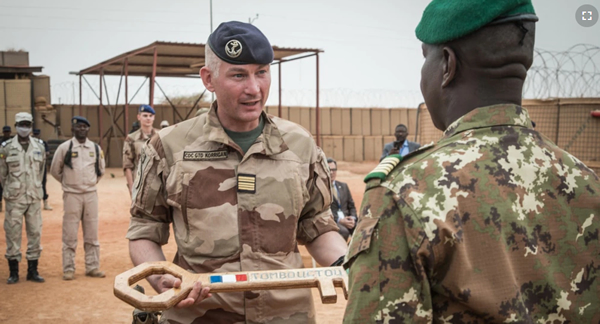
France and its allies in an international force will withdraw their troops from Mali after almost a decade, President Emmanuel Macron has said.
The troops have been involved in the fight against Islamist militants in the country.
The forces will be re-deployed across Africa’s Sahel region.
Mr Macron said the decision to leave followed a breakdown in diplomatic relations, amid growing hostility from Mali’s new governing military junta.
“We cannot remain militarily involved” alongside Malian authorities with whom “we don’t share the strategy and goals”, he told a news conference in Paris on Thursday.
Mr Macron refuted claims that the withdrawal was an acceptance of failure and insisted that France remains committed to combating Islamic insurgencies in the region, adding that Niger had agreed to host some of the withdrawing forces.
“France has played a unifying role in this international mobilisation in favour of the Sahel”, he said. “We will continue to ensure this unifying role.”
The move followed a meeting of EU and African leaders at the Elysee palace.
In a statement released on Thursday morning, countries involved in the French-led Tabuka Taskforce agreed to set out plans on how to remain in the region, notably Niger and the Gulf of Guinea countries, by June 2022.
“In close coordination with the neighbouring states, they also expressed their desire to remain engaged in the region, in accordance with their respective constitutional procedures” the statement said.
The decision will have major security implications for a number of countries involved in the mission.
Ivory Coast President Alassane Ouattara warned that the withdrawal of the forces created “a vacuum” that would increase the burden on regional governments.
“We will be obliged to increase our defence forces and increase the protection of our borders,” Mr Ouattara said.
But Senegalese President Macky Sall said that he understood why France had decided to pull its troops out of Mali, and that he was assured the fight against Islamist militants in the Sahel would continue.
Source: BBC























